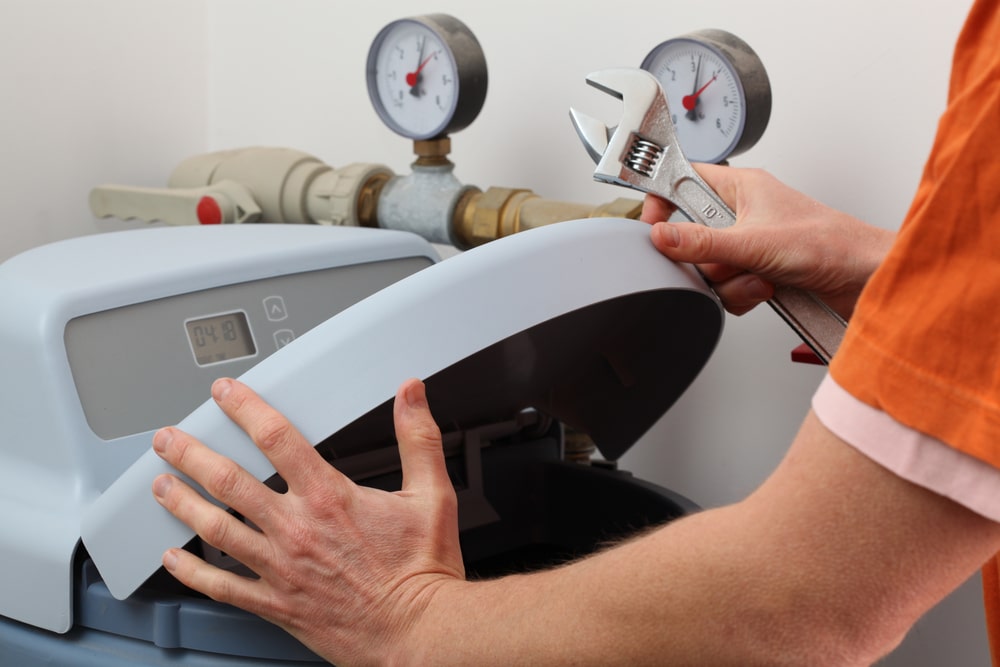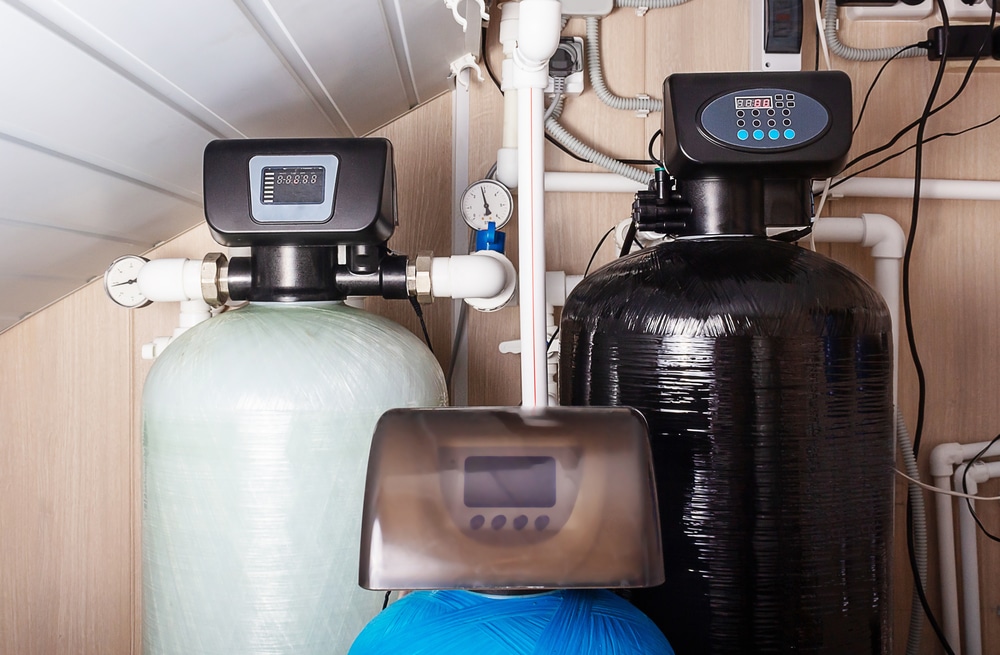Last Updated on
How long do water softeners last? This is a question you may be asking yourself if you’ve found your water softener isn’t working as effectively as it once did. It’s also worth knowing how long you can expect to use your new water-softening system if you’re planning on installing one for the first time.
The good news is that most of these products are relatively durable and long-lasting. They can continue to work well for decades before they need to be replaced. However, you’ll have to make sure you’re maintaining your water softener correctly if you want to get the most out of it.
How Long Does a Water Softener Last?
The exact lifespan of a water softener will vary depending on several factors, including how frequently you fill up your brine tank, the durability of your resin bed, and your home’s water quality. On average, water softeners will last between 10 and 20 years, depending on your chosen system.
A single-tank electric softener can last between 12 and 20 years. However, some products can deteriorate much faster if you have very hard water or problems with your plumbing fixtures. If you notice your water softening unit isn’t working as it should, or you’re not getting as much softened water from your taps, this could be a sign you need to repair or maintain your unit.
Sometimes, the answer isn’t to replace your water softener but add more salt to your brine system or use a water softener cleaner to remove excess deposits from your tank.
What Can Affect Water Softener Lifespan?
A few key elements can dictate how long your water softener lasts. For instance, you’ll first need to know what kind of water softener you have. Often, water softeners that operate using electricity won’t last as long as solar salt water softeners and water softeners which use kinetic energy.
If you have an electric water softener, you may need to get it maintained or repaired regularly by a professional to ensure you can continue to enjoy fresh drinking water and a softer home water supply. Some manufacturers also recommend using water treatment tools to help preserve the resin beads in your water-softening system and ensure the ion exchange process is working correctly.
Signs Your Water Softener Needs to be Replaced or Repaired
There are some signs you can watch for which may indicate your softener isn’t working as well as it should. Hard water manifestations, such as excess soap scum in your bathroom or a different taste in your drinking water, could indicate it’s time for a replacement. However, these signs may also mean more calcium and magnesium are passing through your system because your brine or salt needs to be replaced. Watch out for:
- Less effective cleaning: Hard water makes it more difficult to lather soap in the sink or shower. You may notice you’re going through shampoo, soap, and laundry detergent a lot faster. You could also find your clothes seem stiff and scratchy even after using a softener.
- Mineral buildup: The minerals that are naturally present in hard water can cause crusts to build up around your taps and pipes. Look at your plumbing components when cleaning your bathroom and kitchen, and watch for white residue.
- Different taste: Hard minerals in your drinking water aren’t necessarily dangerous but can affect your water taste. You might find your water tastes a little unusual or metallic. Excess water hardness could also cause scale buildup in your kettle.
- Skin issues: If your water hardness levels are too high, you don’t just end up with stains on your shower walls and bathtub; you could also suffer from itchy and uncomfortable skin. Minerals in your hard water can irritate your skin and make your hair feel dry or brittle.
- Appliance issues: If your washing machines and dishwasher don’t appear to be working properly, this could be a sign your new water softener isn’t working as well as it should be. Hard water can make your clothes stiff and cause various laundry problems. It can also leave calcium and magnesium deposits on your plate.
How to Extend the Lifespan of Your Water Softener
While the lifespan of any water softener can vary, most products should last for at least 10 to 15 years. If your unit is becoming less efficient, this could be a sign you need a water softener replacement. However, if you’ve only had your water softener for a short time, you could take steps to improve its longevity. For instance, you should:

- Change the filter: Using a pre-filter in your water softener system helps remove dangerous sediment like iron and clay from the water. These substances can damage the performance of your machine and increase mineral buildup.
- Use regenerants: Make sure you regularly fill up your brine tank with regenerant. You’ll need to add cubes or pellets to your system regularly to continue banishing hard water minerals consistently.
- Flush the resin bed: Homeowners with a single-tank electric softener will need to use a water softener cleanser around once a year to ensure the resin beads can continue working properly.
- Remove salt bridges: When adding salt to your brine tank, look for any salt bridges that might cause your water softener to work harder.
- Choose the right water softener: Make sure you select the right water softener for your home’s needs. If you live in an area with particularly hard water or you use a lot of water, you may need a larger or more powerful water softener.
When Should You Replace a Water Softener?
So, how long do water softeners last? That all depends on a number of factors. Ultimately, it’s up to you to determine when to replace your system.
Like any other appliance, a water softener does have a lifespan. Simply adding salt and maintaining your water softener won’t always be enough. You shouldn’t have to replace your water softener every few years, but you may need to replace your system after 10 to 15 years.
You can speak to a mechanic or water softener professional about the best time to replace your system. Most of them will be able to give you insights into different hard water effects and how long your product should last.
You may also choose to update your water softener if you find the appliance is no longer effective for your needs. Newer, more advanced products can be more efficient and help you to save more money. Therefore, if your water softener feels a little outdated, you might find it’s a good idea to replace it.
Rebekah is a writer who loves to explore new products and find hacks that make life easier. She has a knack for all things home improvement, health and fitness. So you’ll often find her on Pinterest or browsing Houzz for ideas.
She’s always looking for the next thing to fix up around the house or what gadget might be just right for her lifestyle. Rebekah enjoys exploring new recipes, taking care of her family, and making sure she stays healthy with regular workouts at the gym.



